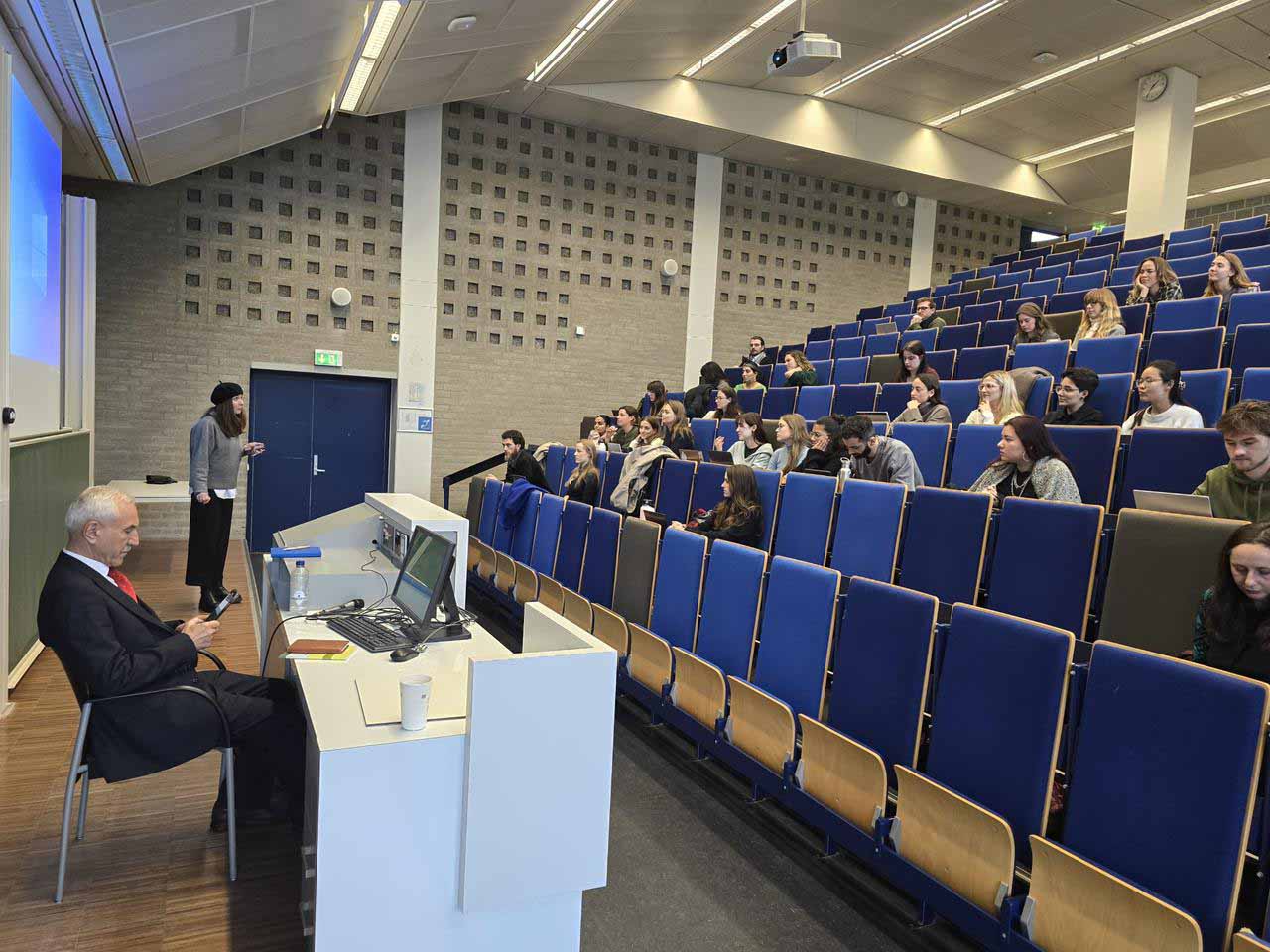On 25th November 2024, His Honour Judge Rizgar Mohammed Amin, an Honorary Member of the Kurdistan Centre for International Law (KCIL), delivered a lecture at the Faculty of Law, Vrije Universiteit Amsterdam. Renowned as the presiding judge of the Iraqi High Tribunal (IHT) during the initial phase of Saddam Hussein's trial, Judge Amin addressed master's students in the International Crime, Conflict, and Criminology program. The session, attended by more than 35 master students and faculty staff members, he presented an insightful exploration of justice, accountability, and transitional legal frameworks.
Judge Amin introduced his speech by reflecting on his role in overseeing one of modern history’s most consequential trials. He offered a detailed account of the legal and procedural challenges faced by the IHT. Judge Amin emphasized on the importance of balancing domestic legal systems with international standards to ensure justice in politically sensitive cases. He also discussed his decision to resign from the tribunal due to external interference and pressures. He highlighted the difficulties the judges in Iraq are facing in maintaining judicial independence amid political turmoil. His firsthand insights showed the complexities of prosecuting high-ranking figures of the Ba'athist regime, in addition the tribunal's critical role in Iraq’s post-conflict rebuilding process.
A large portion of the lecture focused on the ongoing challenges within Iraq’s judicial system, particularly regarding the prosecution of ISIS members. Judge Amin noted that these individuals are currently being tried under anti-terrorism laws, a framework he argued is insufficient to address the full scope of their crimes. He stressed that ISIS committed war crimes, crimes against humanity and genocide. According to Judge Amin, documenting and prosecuting such crimes under international legal frameworks is utmost important for justice, accountability, and setting a precedent for addressing mass atrocities in Iraq and Kurdistan Region.
The lecture concluded with an engaging Q&A session, where students and faculty explored various aspects of Iraq's judicial landscape, including the intersection of domestic and international law. Judge Amin also discussed the broader implications of transitional justice in promoting stability and the rule of law.
Judge Amin’s visit was more than an academic discourse; it was a meaningful exchange bridging theory and practice in international law. His open reflections on judicial independence and the challenges of upholding justice amidst political pressure provided invaluable insights for hopeful legal professionals. As an Honorary Member of KCIL, his engagement reinforces the KCIL's commitment and effort to promoting education and dialogue on international criminal law and human rights.

